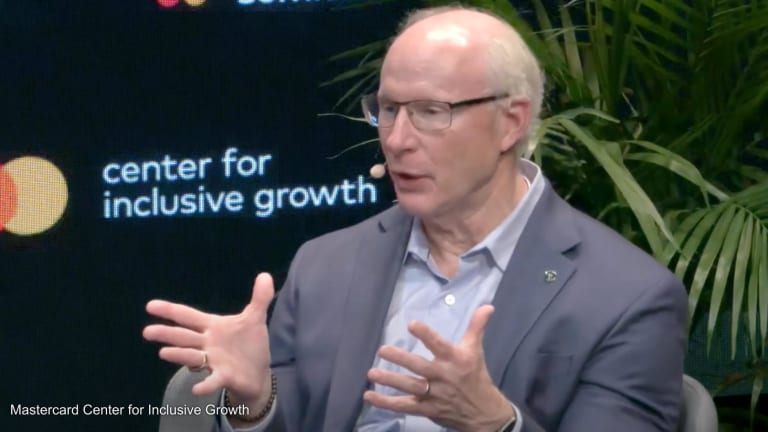
Following the Arab Spring, the Middle East and North Africa has continued to experience political and social unrest and economic decline, coupled with high unemployment rates, especially among Arabs under the age of 24. That young demographic is expected to grow to 10 million in the MENA region between 2015 and 2030. The combination of these key factors has precipitated some of the migration into Europe that we are seeing today. This is not just a concern for the MENA region; it is global one.
Developing entrepreneurship and fostering small- and medium-sized enterprises can help create employment and drive economic growth. That’s why it’s a major item on every local and international governments’ agenda. However, just supporting the development of entrepreneurship is more complex than it may seem. In order to be successful, entrepreneurs need a balanced ecosystem that truly serves their needs in four key areas: environment, infrastructure, finance and human capital.
Although the MENA region has taken steps to develop key aspects within each of the areas, the majority of initiatives have focused on providing finance, which has had a lower than expected return on investment during the last decade.
The reason for these disappointing results is imbalanced ecosystem for entrepreneurs, where an equal importance must be placed on the developing entrepreneurs’ core human capital. This involves a blend of capacities and capabilities, defined as skills, knowledge, behaviors and mindset, as well as leadership.
To address this gap, the Mowgli Foundation set out in 2008 to satisfy the behavioral development needs of entrepreneurs through mentoring. Our programs aim to have this mindset component recognized as a core piece of developing the human capital of entrepreneurs, especially during the period that the startup industry refers to as the “hockey stick.” Starting out, getting up the curve and breaking through is one of the loneliest and most challenging journeys that one can undertake. These are the moments when it is critical for an entrepreneur to have a mentor.
Here are lessons from the 90 mentoring programs that Mowgli has delivered within 13 MENA countries and the United Kingdom, where we have developed an alumni network of 1,770-plus entrepreneurs and mentors.
Investors in mentoring receive a high return on their investment
Mowgli funders (international governments, philanthropists and corporates) achieved a staggering 890 percent average rate of return on mentoring in MENA, based on the salaries generated through the jobs created and safeguarded during the Mowgli-facilitated mentoring year.
It should be noted that this figure does not include the salaries thereafter, nor the business revenues, so in real terms the gains would be much greater.
Mentored entrepreneurs are more likely to succeed
On average, entrepreneurs in the program create 3.3 new jobs during the one-year facilitated mentoring relationship.
More than 90 percent of the existing jobs at the beginning of the one-year program were safeguarded at the end of the mentoring, and 89 percent of those who were mentored had sustained their businesses through the end of the mentoring year.
All in all, the mentored entrepreneurs in the program contributed more than $18 million to the regional economies through the salaries paid out to their employees only.
Again, it should be noted that this figure does not include the salaries thereafter, nor the business revenues. In real terms, the benefits would be much greater.
Mentoring creates leaders
3-tiered mentoring impact:
1. Personal growth and strengthening of leadership of entrepreneurs leads to:
2. Business growth, sustainability and success, which in turn leads to:
3. Economic growth, job creation and safeguarding.
Further empowerment and investment in human capacity development, and specifically the mentoring of entrepreneurs, would significantly benefit countries, in terms of unemployment, economic growth and leadership development.
Mentored entrepreneurs become more capable leaders with a stronger core spirit. They become better equipped to achieve sustainable business growth, thereby safeguarding existing jobs, creating new jobs, and positively contributing to economic growth.
Mentoring is a key human capacity development investment that needs to be made available for today’s entrepreneurs if they are to deliver the much-needed economic growth and employment creation that we are all seeking for the region. If not, will we be able to achieve the maximum return on other investments made in areas, such as skill development and financing? If not, are we really doing all we can to reduce the unemployment rate? If not, can we say we are truly serving the entrepreneurs or are we setting them up to fail?
To know more about Mowgli’s Impact, please read Mowgli 2015 Impact report
Join the Devex community and access more in-depth analysis, breaking news and business advice — and a host of other services — on international development, humanitarian aid and global health.




